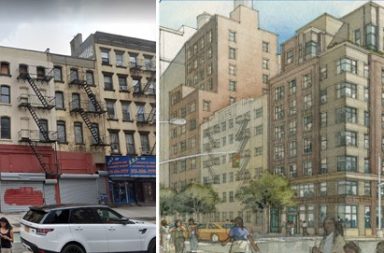The commercial real estate industry is adapting to the coronavirus quarantines by renegotiating sales and leases, pausing physical tours and having frank negotiations with lenders — when they can be reached.
Tenants still searching for their next office space — coronavirus be damned — can only do it through flyers and virtual tours, while tenants planning on moving to a new space may be waiting longer now that all interior construction has ceased.
“No one is showing space right now,” says tenant broker William Montana of Savills. “We are presenting information and floor plans and conducting virtual tours, but not going into the city and showing space.”
Worried businesses are also flooding brokers and lawyers to ask if they must pay their April 1 rent. Montana tells his clients to pay if they can. “But send it along with a note that says, ‘If things go on, we may have to have a conversation — but for now, we are all in this together,’” he says.
Where businesses have no income, Montana may negotiate to defer rent for a couple of months. Such payments may be tacked onto an extended lease.
In other cases, he is negotiating “blends and extends,” where the current lease is extended, by say, another 10 years, with a lower rent and months of free rent that start immediately.
“Every situation is unique, and everyone is going to behave differently,” Montana says. “The lawyers will be busy,” he adds.
Attorney Jay Neveloff of Kramer Levin is telling clients to call and ask for more time. “It’s reputational and in everybody’s interest — you will be doing business with these people for a long time,” he notes.
Those with complex capital stacks and CMBS lenders — where large loans are grouped and sold as collateralized mortgage-backed securities — are also saying they can’t reach master servicers or special servicers on the phone.
If the banks start foreclosures, or deals to sell them die, buildings could be in limbo for months or years as lawsuits wend their way through courts.
It took eight years to untangle 405 Park Ave. after a sale fell apart in 2007 and the parties fought in court over a $39 million deposit. It’s now back on the market for the second time in four years.
Owners that need to identify properties for 1031 exchanges are seeking guidance as federal tax law gives them just a short window to identify their next property and close — or pay capital gains tax on the sale.
“They are bidding on some of our properties,” says Avison Young’s James Nelson, because, so far, the feds have not offered a 1031 extension.
Douglas Harmon of Cushman & Wakefield explains there is “Pre-CV and Post-CV” pricing. “Deals executed or agreed upon before mid-March are being viewed and valued differently than those discussed today or tomorrow,” he says as parties work to ensure loans and rental streams aren’t adversely affected. “Empathy between counterparties is the focal point of this new world order.”
Documents were dropped on Keith Rubenstein’s doorstep to close the sale of two Mott Haven properties to RXR for $32.5 million in mid-March that he will keep managing. “In the future, we will have optional pandemic insurance like we have terrorist insurance,” Rubenstein predicts.
Building owners are expected to handle retailers’ rent problems “a lot differently” than their office lease discussions, Neveloff says, as retail was going through a meltdown prior to the virus woes.
Some retail condominiums skipped property tax payments last year, the lien list shows, and now hotel owners are warning they can’t pay their July 1 tax bills, either.
So far, the city’s Finance Department has not put off either the April 1 or July 1 property tax payments that will begin to toll interest.
But Mayor de Blasio has now moved the May 14 deadline to late summer for nearly 16,000 properties on the lien list to enter into a payment plan after my article last week explained the issue.
Now, if property taxes aren’t paid en masse July 1, the real cascade of Big Apple defaults and foreclosures could begin.









